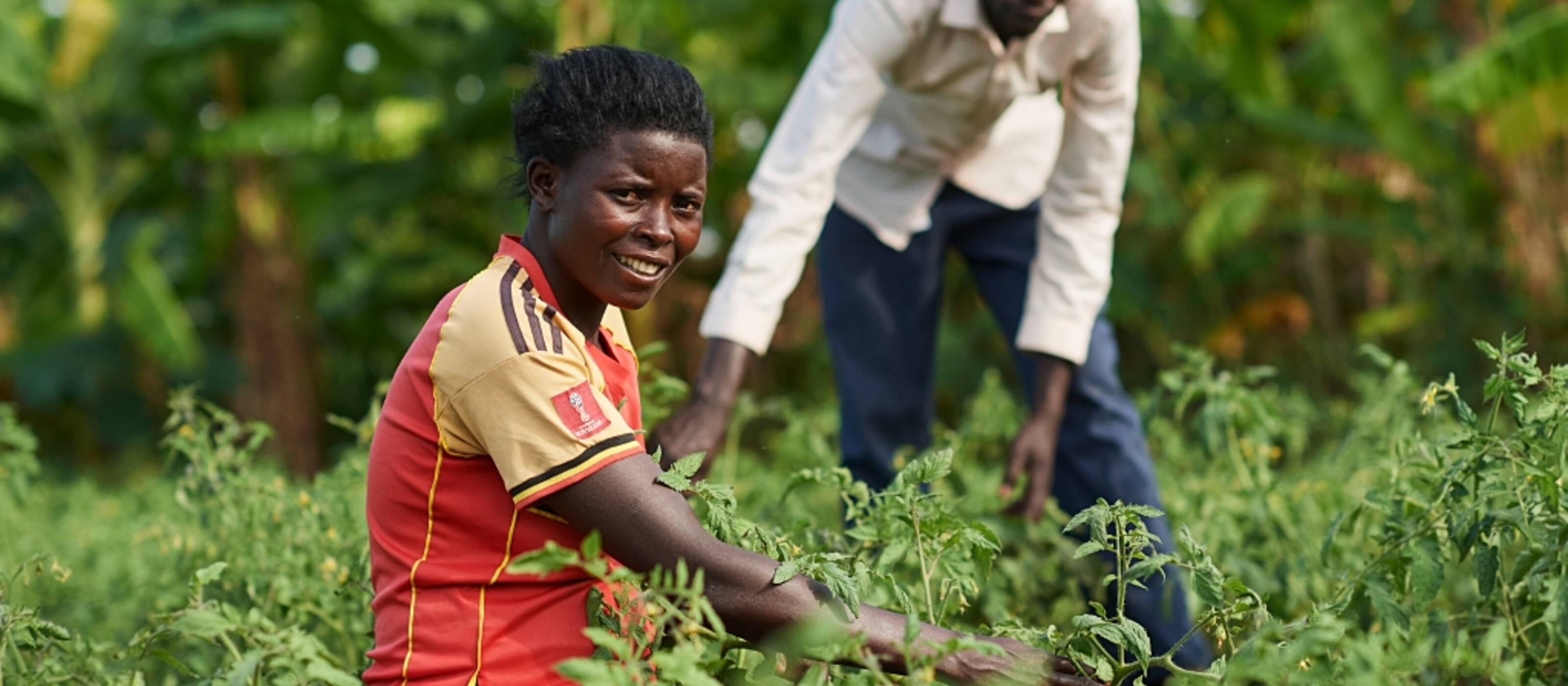

Uganda
Uganda has undergone great change in the last decade. The years after gaining independence from Great Britain in 1962 were marked by violence and war. In 2008, after the end of decades-long civil wars, many forcibly displaced people were able to return to their home country. The population of Uganda is increasing steadily and is very young. More than half of the inhabitants are below the age of 15.
The consequences of the civil war can still be clearly seen and felt, especially in the north of Uganda. In addition to the violence and great deprivation, the war also left broken family structures in its wake, and a loss of cultural knowledge. Caritas Switzerland has been engaged in Uganda since 1994, with the aim of meeting the basic needs of the population and strengthening its resilience.
Overview in figures
Sources: Human Development Report, UNESCO, UNFPA (as of 2023)
- Total population: 48.6 million
- Poverty index (proportion of people affected by poverty): 57.20%
- Prosperity indicator (total 193 states): rank 159
- Gross National Income per head: USD 2'241
- Life expectancy at birth: 63.6 years
- Child mortality: 4.1%
- Literacy rate (age 15 and over): 80.6%
- CO2 emissions per capita: 0.1 tons
Caritas Switzerland on site
Header image: Maurien Marachtoon on her tomato plot in the north-west of Uganda. © Fabian Biasio